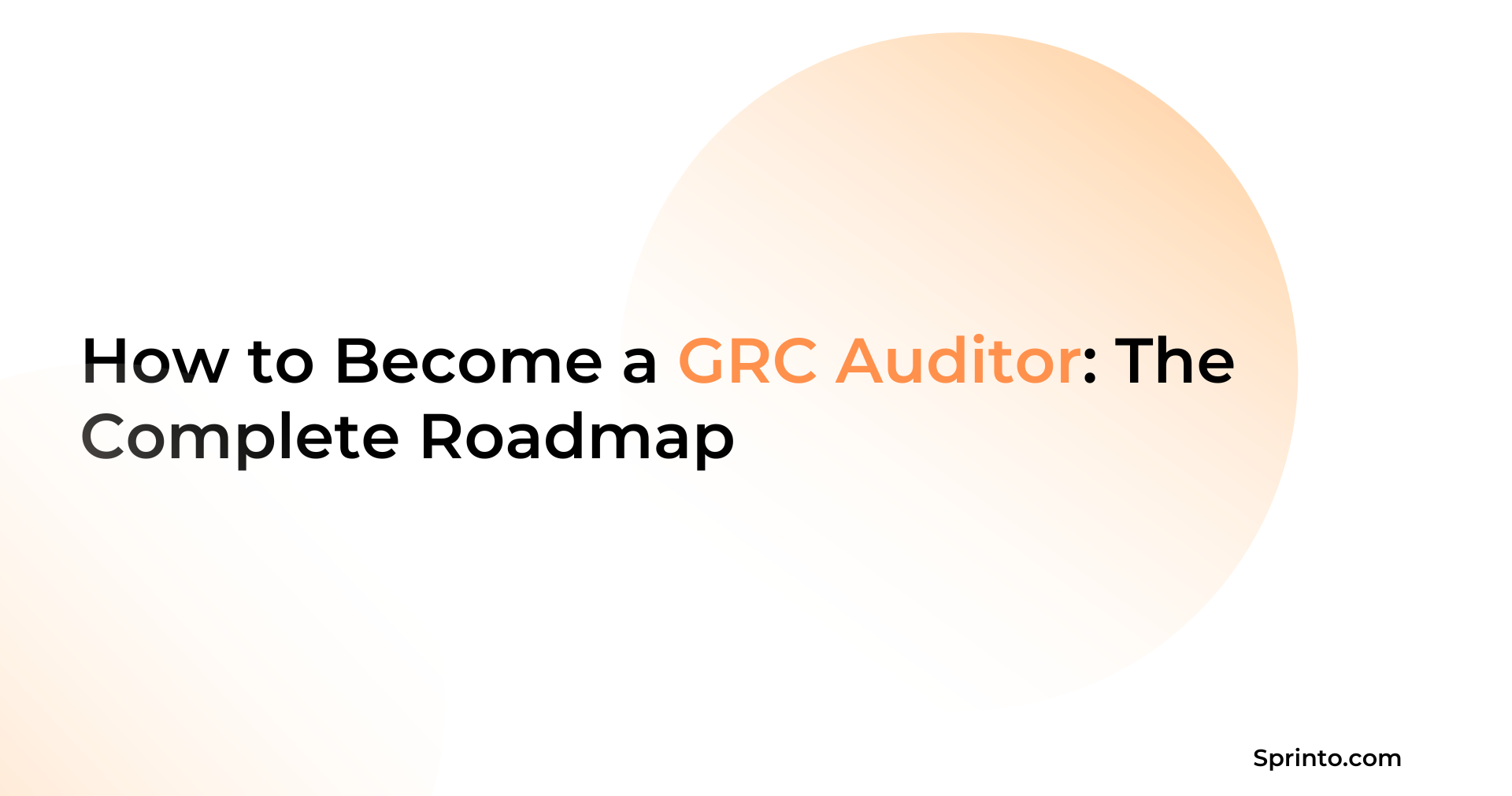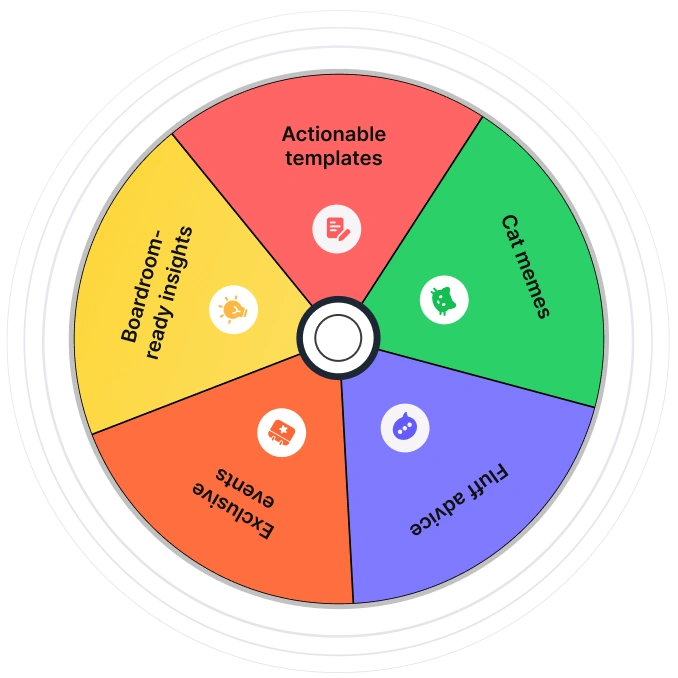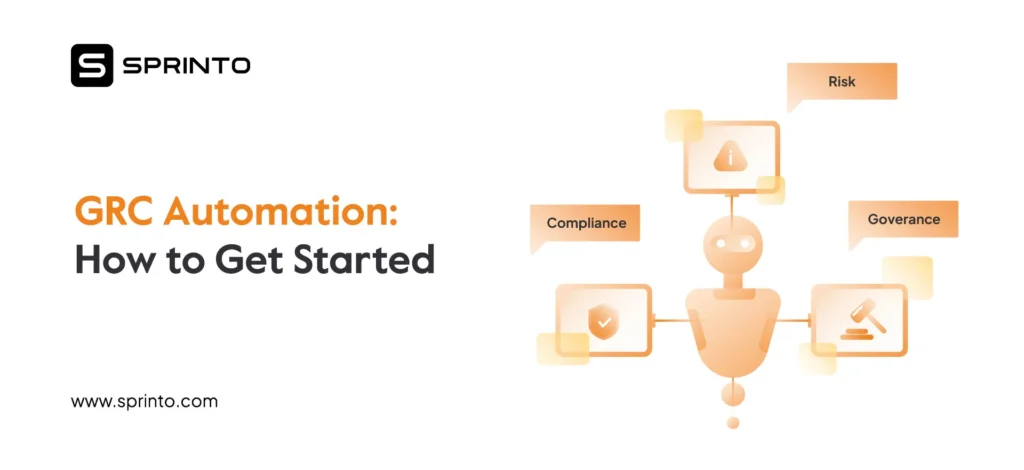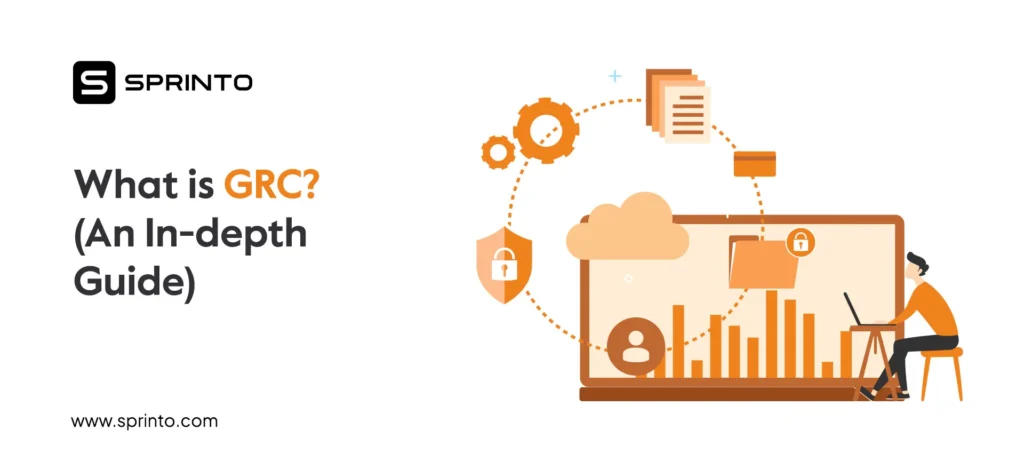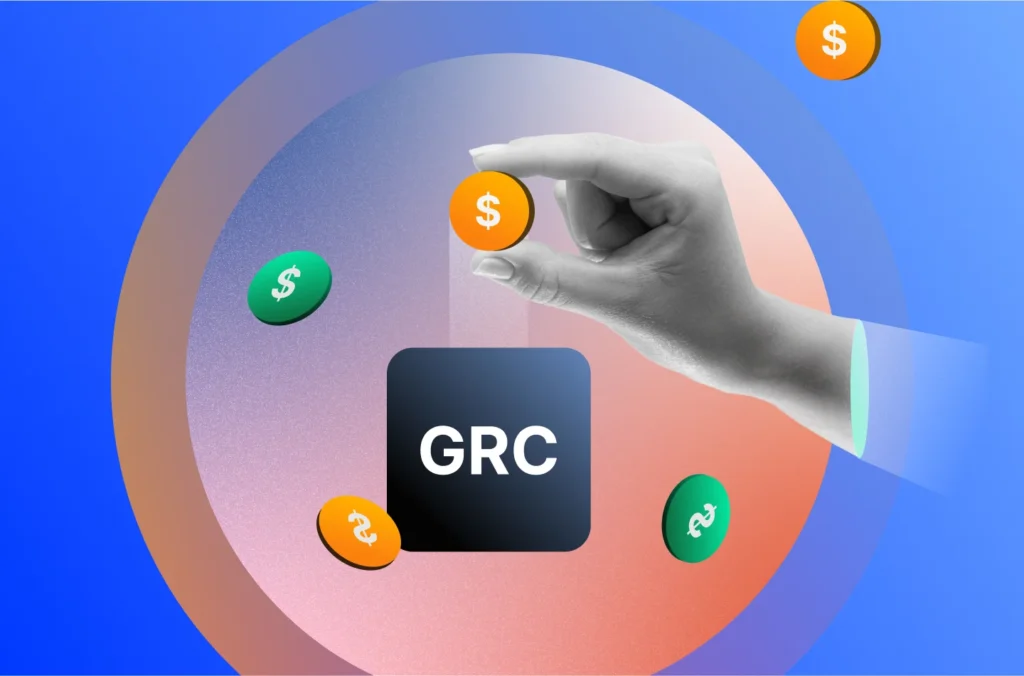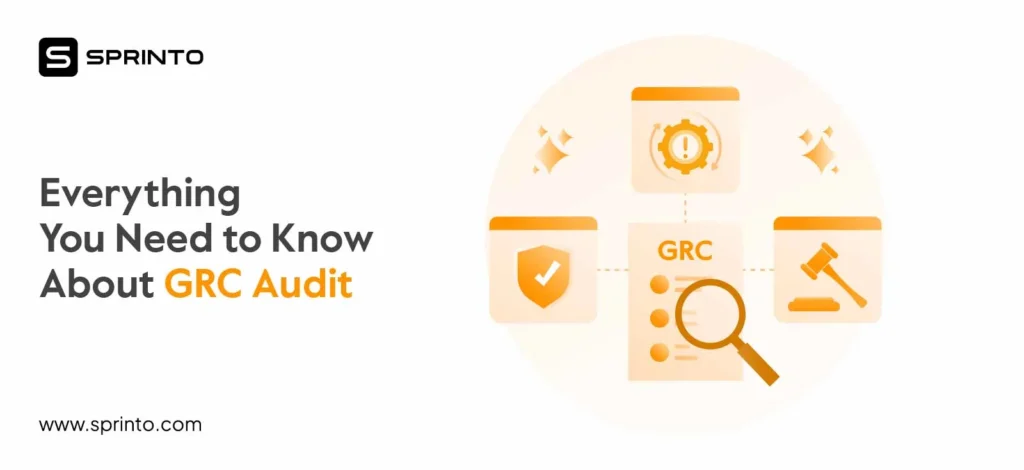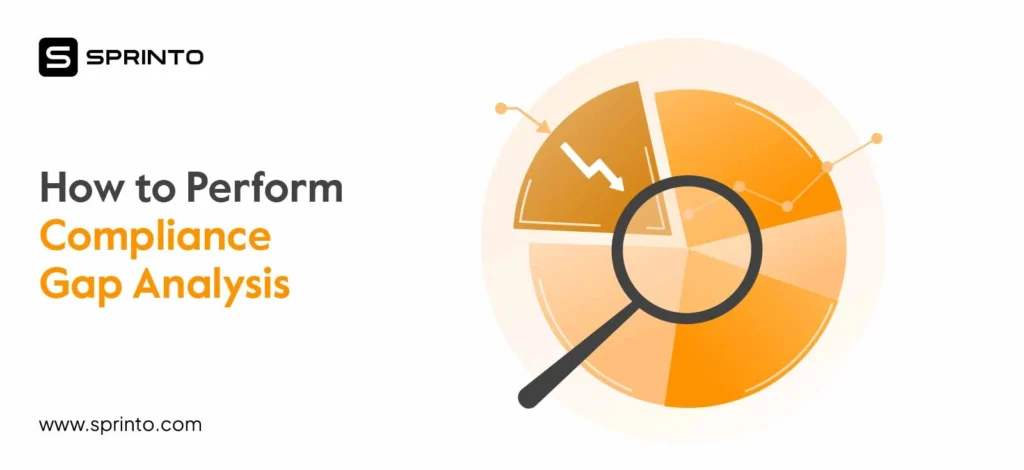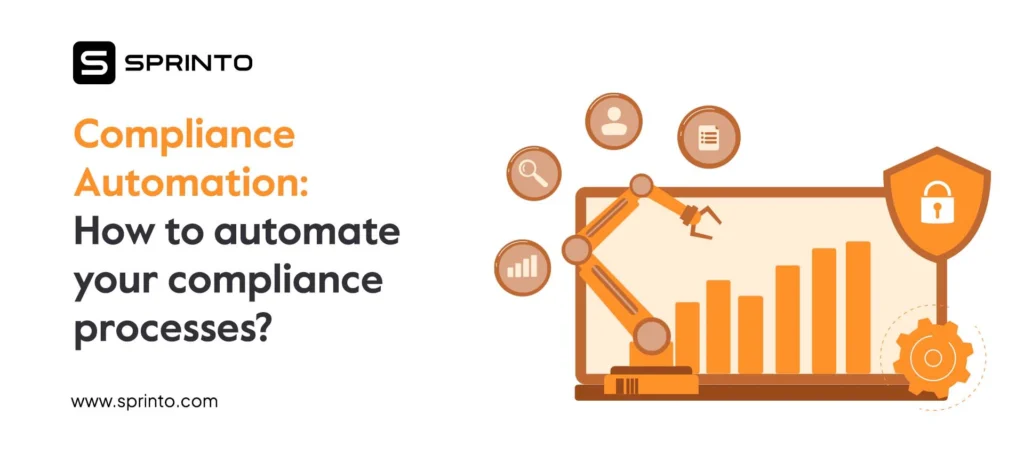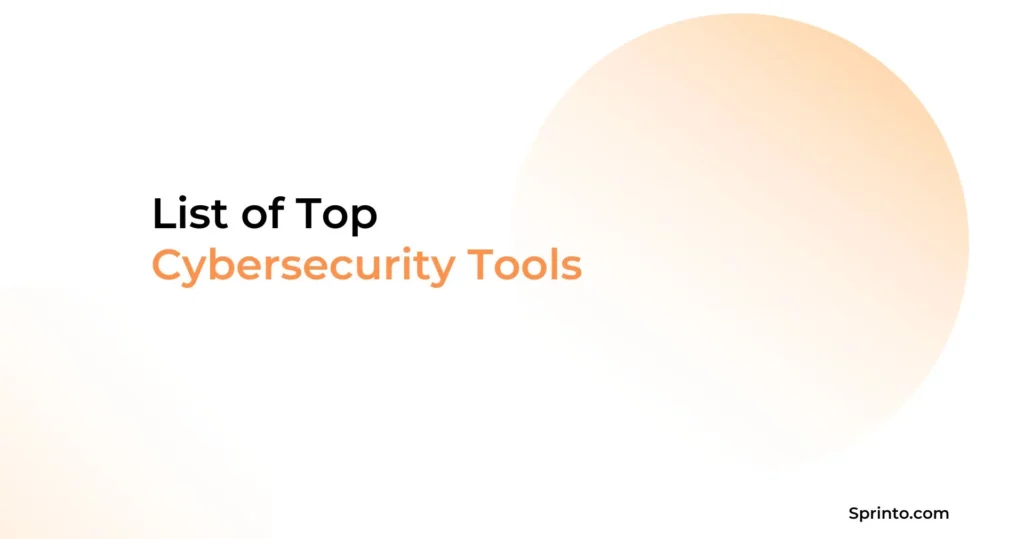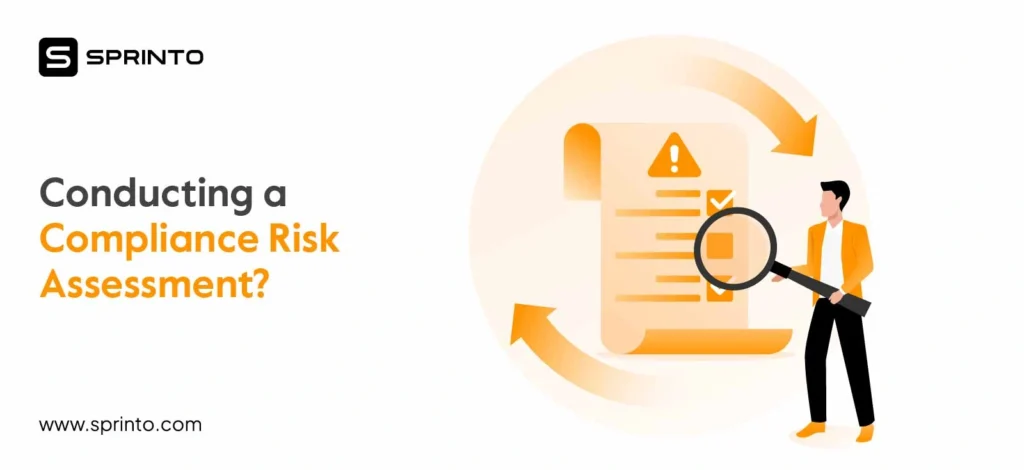Every security failure, breach, or fine can be attributed to a gap that no one caught at the right time. Cybersecurity auditors, sometimes called GRC auditors, exist to close these gaps.
On a typical day, their work involves planning audits, assessing organizational safeguards, testing systems, and documenting findings. It’s detail-heavy but also demands strategic thinking. And here’s the nuance—cyber security auditing often overlaps with GRC (Governance, Risk, and Compliance) auditing.
The title may differ, with some companies calling them cyber security auditors and others GRC auditors. However, the essence of the role is focused on ensuring that governance, risk, and compliance are aligned.
This guide will explain the role in practice and how you can build a career in this field.
TL;DR
- Cyber security or GRC auditors close compliance and risk gaps by planning audits, testing controls, and aligning policies with frameworks.
- Success in a GRC auditor role requires a combination of technical fluency, risk management, communication skills, and certifications like GRCA, CISA, and CISM.
- With hands-on experience and continuous learning, GRC auditors can progress into specialized and senior roles that shape enterprise security and compliance strategy.
Who is a GRC auditor?
A GRC auditor ensures that your organization’s governance, risk management, and compliance efforts work as intended. Their purpose is to instill confidence in stakeholders that governance structures are effective, risks are identified and managed, and compliance is embedded in daily operations.
Rather than looking at isolated policies or processes, a GRC auditor looks at the system as a whole. In short, they help ensure that governance, risk, and compliance don’t just exist on paper but actively enable the organization to operate with trust and security.
What are the roles and responsibilities of GRC auditors in enterprises?
GRC auditors play a critical role in enterprise GRC. Balancing growth with GRC initiatives, the leading roles and responsibilities of GRC auditors include:
- Plan risk-based audits: They translate and incorporate an organization’s risk profile into a structured audit.
- Evaluating governance: They evaluate governance frameworks to inspect role clarity, policy governance, and how governance supports strategy and ethical conduct.
- Evaluating enterprise risk management initiatives: A GRC auditor assesses cross-department risk practices and is responsible for updating playbooks to keep up with evolving regulations, standards, and best practices.
- Verify compliance and regulatory framework: A GRC auditor helps maintain your security posture by ensuring adherence to compliance frameworks like ISO 27001, HIPAA, and SOC 2.
- Validating policies and procedures: They check that policies exist, are current, communicated, and followed in daily operations. This also involves aligning documented procedures with practical alignment.
- Test internal controls: They perform walkthroughs and evidence reviews to confirm that controls and safeguards work as intended.
- Disaster Recovery (DR) and Business Continuity Planning (BCP): Engaging in DR and BCP activities while overseeing the testing and validation of these plans.
- Reporting and remediation: They also rate issue severity, recommend corrective action, and monitor status until risks are reduced or accepted.
- Leverage automation and analytics: Use GRC/IRM tools to automate evidence collection, control checks, and risk assessments while applying analytics to spot issues early on.
Skills & qualifications needed for GRC auditors
A GRC auditor role can span from entry-level analysts and mid-level roles to senior managers. The progression is tied to experience across security, risk, and compliance domains. To succeed in this role, you’ll need a blend of technical literacy, regulatory depth, and solid communication skills.
Education
- Bachelor’s degree: Most GRC auditors hold degrees in information technology, finance, computer science, or cybersecurity. This foundation helps them understand technical systems and business processes.
- Advanced specialization (optional): A Master’s in cyber security, risk management, or business administration specializing in information security or similar fields.
- Certifications: Credentials like CISA, CRISC, or ISO 27001 Lead Auditor can help validate your expertise as a GRC auditor.
Technical skills
- IT & cloud fluency: Understand how AWS, Azure, GCP, and other security controls map to compliance needs.
- Control testing: Ability to evaluate IT general controls (ITGCs), and security configurations.
- Cyber security basics: Deep understanding of core concepts such as risk analysis, security controls, identity and access management (IAM), and audits and assessments.
Regulatory & domain knowledge
- Compliance framework mastery: Familiarity with frameworks like ISO 27001, PCI DSS, SOC 2, and GDPR is non-negotiable. As you progress to more senior roles, deeper specialization in specialized frameworks becomes a lot more critical.
- Policy development: Ability to draft and update security policies to meet new regulations and audit findings.
- Regulatory change management: Monitoring evolving laws and standards and aligning internal practices accordingly.
Business & analytical skills
- Analytical thinking: Capacity to link controls to enterprise-wide risk exposure.
- Risk-based approach: Applying risk prioritization to audit planning and execution.
- Strategic oversight: Reviewing governance and risk management structures to ensure they function cohesively, not in silos.
- Decision support: Turning audit data into insights that drive leadership decisions.
Risk management skills
- Enterprise risk management (ERM): Identifying, assessing, and managing risk across cyber, operational, and compliance domains.
- Third-party risk management (TPRM): Evaluating vendor risks and implementing outsourcing controls.
- Risk-based auditing: Planning and scoping audits based on risk exposure. The goal is to manage key risks and controls that safeguard organizational objectives.
Communication & interpersonal skills
- Clear communication: Translating technical jargon into executive-ready language.
- Cross-functional collaboration: Working with multiple stakeholders and departments, including HR, IT, finance, and legal, to gather evidence and validate controls.
- Influencing & training: Driving remediation plans and supporting awareness initiatives.
How to become a GRC auditor (step-by-step)
For the designer:
Blog feature image brief- Side by side checklist with 9 steps:
- Master cybersecurity & GRC basics
- Learn key frameworks (ISO, SOC 2, GDPR
- Get real-world audit experience
- Earn certifications (CISA, CRISC, CGRC)
- Work with GRC tools
- Keep learning & network smart
- Specialize in high-demand areas
- Land entry-level roles
- Showcase results & grow
To break into the GRC field, you need a clear roadmap that covers everything from where to start, what to study, and how to gain the right experience. Here is the complete set of steps to follow if you want to build a career as a GRC auditor:
1. Build a foundation in cybersecurity
Start by learning the basics of risk management and cybersecurity. At this step, it’s equally important to master the three pillars of Governance, Risk, and Compliance (GRC).
Free resources like YouTube channels, online articles, and blogs can help. But more structured resources like cybersecurity certifications and online programs can give more clarity. Examples include Google Cybersecurity Professional Certifications or CompTIA’s Security+, which will provide you with a solid grounding in security concepts, networking, and industry terminology.
2. Learn key compliance frameworks
Get acquainted with the vital regulatory frameworks that an organization needs. These include ISO 27001, NIST, SOC 2, HIPAA, and GDPR. Familiarity with these frameworks will help you understand how organizations align policies and processes with compliance obligations.
3. Get hands-on experience
Practical, hands-on experience helps demonstrate initiative and offers something concrete to showcase on your resume and interviews. Here are some ways you can show experience:
- Review sample audit templates
- Take up pro bono compliance projects with small businesses or not-for-profits
- Participate in cybersecurity community projects or labs
- Draft sample policies aligned with industry frameworks
4. Earn GRC-specific certifications
GRC-focused certifications help demonstrate specialized expertise. Depending on your knowledge level, you can opt for beginner-friendly certifications like CRISC (Certified in Risk and Information Systems Control) or CGRC (Certified in Governance, Risk and Compliance).
If you want to advance your career, then industry-recognized credentials like CISA (Certified Information Systems Auditor) or CISM (Certified Information Security Manager) would make more sense.
5. Learn to work with GRC tools
Familiarize yourself with GRC tools commonly used by enterprises to manage risk and compliance. GRC platforms like Sprinto help you automate compliance workflows, manage enterprise risks, and monitor risks in real time.
Getting comfortable with these tools will help you position yourself well, since many enterprises expect auditors to hit the ground running with GRC platforms.
6. Stay current & network
Given how dynamic the regulatory landscape is, GRC professionals must commit to continuous learning. Becoming a part of associations like ISACA or The Institute of Internal Auditors (IIA) will be lucrative.
Networking through LinkedIn groups, other communities, and cybersecurity conferences can also open doors to hidden job opportunities.
Employers will always value candidates who don’t just have the skills but also actively engage with the broader professional community.
7. Pursue specializations
Focusing on specializations that have high industry demand or match your strengths can increase your chances of getting hired. You can explore niche areas such as cyber security risk, regulatory compliance, or ESG.
8. Apply for entry-level and transitional roles
After building your GRC career foundation with the right courses, certifications, and experience, apply for roles leading into the GRC audit process and cybersecurity.
When applying, tailor your resume to emphasize framework familiarity (HIPAA, GDPR, ISO 27001), certifications, and hands-on projects you’ve completed. Aligning your experience with what hiring managers value the most helps you stand out and bag the role of a GRC auditor.
9. Showcase impact and grow
Track the impact of your audits, process improvements, or compliance initiatives. The best way to win over potential employers is to show them the impact you have had.
Share how you contributed to GRC initiatives and projects like “reduced audit prep time by X% through automation.” Over time, this will help you build your reputation as someone who doesn’t just audit, but also strengthens business resilience.
Certifications for GRC Auditors
If you want to validate your expertise, here are some certifications that can help you build a solid career foundation:
1. GRCA (GRC Auditor – OCEG)
This certification covers most concepts that GRC auditors use daily. It is tailored for GRC auditors and aligns with OCEG’s global standards for integrated risk, governance, and compliance.
2. CISA (Certified Information Systems Auditor)
The Information Systems Audit and Controls Association (ISACA) offers this globally recognized certification. It validates expertise in IT auditing, control, and assurance.
3. CRISC (Certified in Risk and Information Systems Control)
If you’re looking to build specialization in risk management, this certification demonstrates skills in identifying, assessing, and mitigating enterprise IT risks.
4. CISM (Certified Information Security Manager)
This certification is especially useful for professionals who want to develop advanced skills in managing and implementing information security within an organization.
5. ISO 27001 Lead Auditor
This certification equips you with the skills to conduct and lead audits against the ISO 27001 standard for information security management.
Stacking certificates at every career stage helps you transition into high-value GRC auditor and management positions.
Challenges in GRC auditing
Before you step into the role of a GRC auditor, you must get familiar with the messy realities of risk, regulation, and the culture of enterprise compliance. Here are some challenges you may encounter in the process:
- Lack of a unified vision: This happens when risk, IT, legal, and finance operate in silos. In this complex setup, auditors are responsible for connecting the dots.
- Manual, fragmented processes: Organizations tend to rely on spreadsheets and ad hoc reporting, which makes validating evidence slow and prone to error.
- Lack of a strong compliance culture: Even strong compliance frameworks fail when governance isn’t embedded into daily behavior. This is another gap that auditors must highlight and address.
- Rising cyber complexity: With the evolving cloud environment, AI, and the expanding threat surface, GRC auditors need to constantly test whether safeguards actually hold up against today’s risks.
For aspiring GRC auditors, understanding these challenges will help them be better prepared for handling different risk scenarios.
Best practices for effective GRC auditing
If you want to succeed in the role of a GRC auditor and handle challenges effectively, here are some best practices that will be helpful:
1. Centralize controls, risks, and evidence
The antidote to siloed operations lies in a centralized system for handling controls, risks, and evidence. This also helps prevent duplication and ensures teams work from a single source of truth.
2. Incorporate automation
Audits aren’t one-off events. Automation and continuous monitoring are essential for staying audit-ready, reducing manual errors, and preparing auditors for high-value analyses. With GRC automation platforms like Sprinto, this becomes much easier.
3. Establish accountability at all levels
Compliance doesn’t only involve IT. HR, legal, finance, and sales all touch compliance-critical processes. Building a culture of accountability across departments helps with adoption and encourages ownership.
4. Design for scalability
Build frameworks, policies, and processes that scale across new geographies and frameworks. Pre-mapped controls ensure you don’t have to reinvent the wheel with every new compliance demand.
5. Promote ongoing education and training
The principle of continuous learning should apply to you and your team. After all, compliance programs are only as strong as the people behind them. Training employees ensures policies translate into daily practice, and that too, in the right way.
6. Regularly review policies
GRC policies should evolve with shifting regulations and evolving threat landscapes. Regular reviews of policies ensure they remain relevant, effective, and trusted across the enterprise.
Career paths and opportunities for GRC auditors
By now, you probably know what will go into building a solid GRC auditor profile. The good part is that there’s no one way to approach it. But most well-worn GRC professionals enter through a few well-worn pathways:
1. IT-driven transitions
- IT support to GRC: Cybersecurity operations or Sysadmin professionals can transition into GRC by leveraging their technical expertise.
- Internal collaboration: IT staff working closely with GRC teams on risk assessments or control setup can transition when opportunities arise.
- Consulting experience: IT consultants who handle audits, governance frameworks, or risk management can pivot into full-time GRC roles.
2. Tech-focused entry points
- Cyber security professionals: SOC analysts, security engineers, or penetration testers often transition by applying their tech know-how to enterprise GRC.
- Privacy specialists: Experts in GDPR, CCPA, or data protection frequently expand into broader GRC roles.
3. Non-tech paths
- Legal & regulatory professionals: Backgrounds in law, regulatory policy, or compliance can switch to GRC auditor roles with their experience.
- Auditors: Internal and external auditors familiar with controls and testing often shift into risk and compliance roles.
4. Industry-specific pivots
- Healthcare: Compliance officers familiar with compliance regulations like HIPAA and HITRUST can move into healthcare GRC roles.
- Finance: Accountants and analysts with fraud risk or control testing experience may choose to shift into financial GRC.
- Engineering or manufacturing: Specialisation in ISO 9001 or ISO 27001can progress into operational risk or compliance management.
GRC careers are not limited to one background. Whether you come from IT, law, finance, or operations, the key is to demonstrate strong framework knowledge, communication skills, and risk awareness.
The road ahead for aspiring GRC auditors
A GRC auditor plays an important role in helping organizations stay secure, compliant, and resilient. By mastering frameworks, risk management, and audit practices, you can position yourself as a trusted advisor to your employers.
The career path is diverse and has multiple entry points. But as regulations evolve and digital risks expand, only the skilled GRC auditors will remain indispensable. With the right mix of practical exposure, experience, certifications, and continuous learning, you can even progress into leadership roles and shape how organizations manage risk and build trust.
Srikar Sai
As a Senior Content Marketer at Sprinto, Srikar Sai turns cybersecurity chaos into clarity. He cuts through the jargon to help people grasp why security matters and how to act on it, making the complex accessible and the overwhelming actionable. He thrives where tech meets business.
Explore more
research & insights curated to help you earn a seat at the table.



